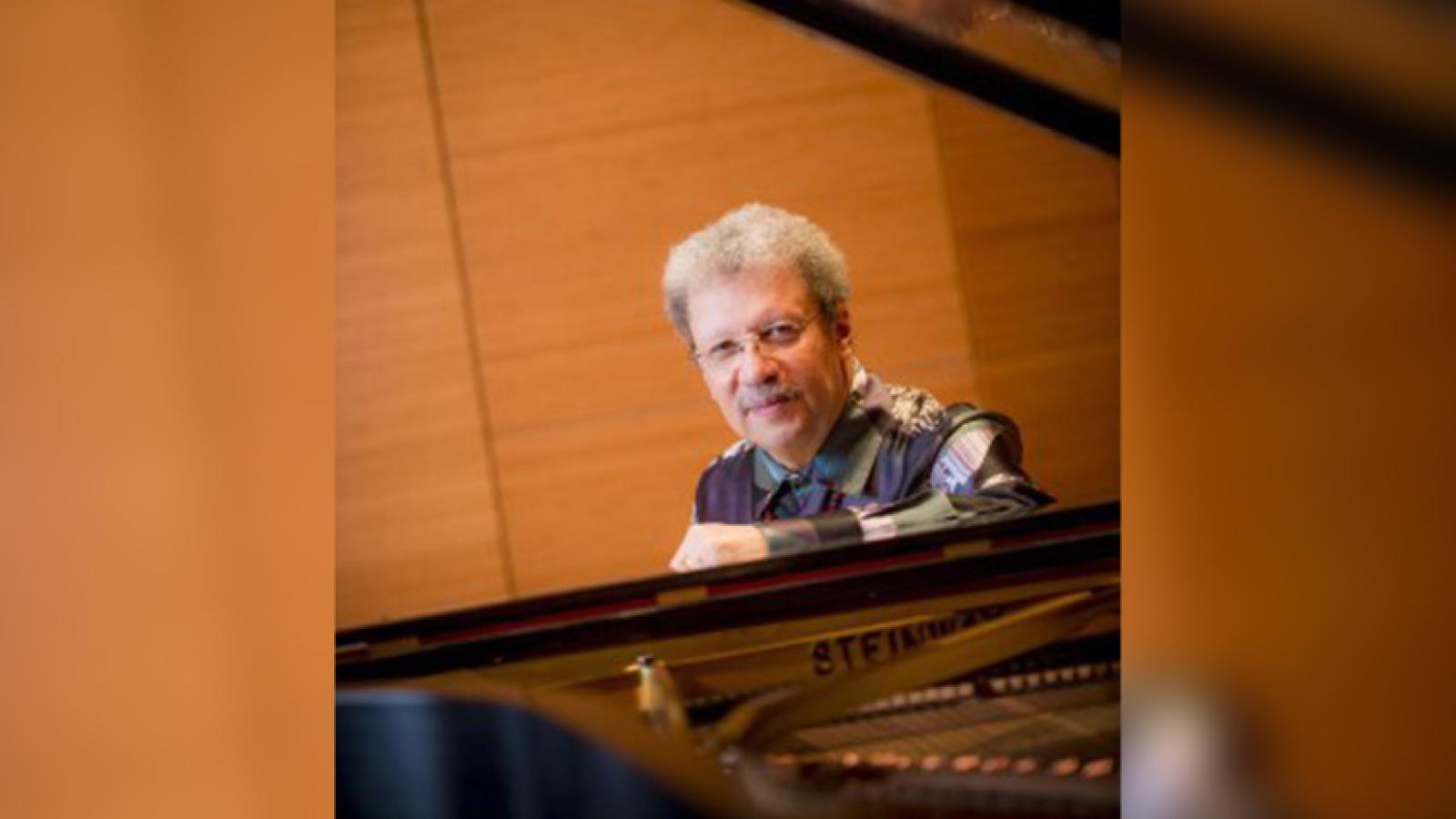Pianist and composer Anthony Davis, who grew up summering at his grandparents’ home in Oak Bluffs and still co-owns a family residence there, has won the Pulitzer Prize for his opera The Central Park Five.
“It’s an affirmation of what I’ve been doing for a number of years,” said Mr. Davis, whose earlier operas include X, the Life and Times of Malcolm X and Amistad.
A professor of music at the University of California, San Diego, Mr. Davis first established himself as an East Coast jazz pianist in the 1970s, playing and recording both on his own and with other leading post-bop innovators. Two of his early LPs reveal his Martha’s Vineyard connection with cover art by Tisbury glassworker Barney Zeitz, a longtime friend and fan going back to the days when Mr. Davis played on the Island regularly.
“I had a gig at the Ocean View lounge the year they made Jaws,” Mr. Davis recalled, by phone from his San Diego home last weekend. “The cast used to come... to hear me. They even talked to me about maybe being the band on the beach in the movie.”
Mr. Davis performed with a trio that summer which included two future stalwarts of the avant-garde, drummer Gerry Hemingway and Bassist Wes Brown. In the end, Mr. Davis said the logistics of bringing an electric piano to the beach sent the Jaws producers in a different direction. Michael Haydn, who still lives on the Vineyard, played guitar in the beach scene that opens the film.
Mr. Davis’s interest in opera began before he had ever seen one performed. “It began when I was in high school in Italy for 10th grade, and I had a wonderful teacher... who introduced me to Nietzsche and Kierkegaard.”
Friedrich Nietzsche’s work of dramatic theory, The Birth of Tragedy from the Spirit of Music, awakened big thoughts in the teenager. Mr. Davis saw parallels to Nietzsche’s dichotomy of Apollonian and Dionysian influences in the mixture of improvised and composed African and European music he was listening to and playing.
“More of the idea of opera at that point really fascinated me,” recalled Mr. Davis, who started Yale as a philosophy major before switching to music his senior year. By then, he was already playing New Haven and New York jazz clubs with some of the musicians he would soon collaborate with in recording studios.
In the 1980s, Mr. Davis began recording classical works including a piano concerto, a violin concerto featuring Shem Guibbory and his first opera, X, The Life and Times of Malcolm X, with a libretto by his cousin Thulani Davis.
Seven more operas have followed, including Lear on 2nd Floor, his gender-flipped retelling of Shakespeare’s most magnificently tragic tale, and The Central Park Five, which premiered last June at the Long Beach Opera Company in southern California.
Mr. Davis’s Pulitzer-winning work follows the polarizing 1990 conviction, without evidence, of five teenagers of color for a sensational rape they did not commit. As with his earlier, history-based works, Mr. Davis brings living characters to the opera stage, including Donald Trump, who during the trial had fervently called for the young men’s execution.
“I look at that as the beginning of his political career, because he exploited a polarized New York,” Mr. Davis said. “That’s been his playbook, to take racial and social tension and exploit it.”
In the opera, Mr. Trump is more comic villain than nemesis.
“He has an aria on a golden toilet,” Mr. Davis said. “He’s sitting on a golden toilet, talking on a cell phone. I guess it’s something he used to do, so we have him singing, and then he has his supporters.”
But while the operatic Trump may be good for a light-hearted moment of relief in a serious story, the character is also dangerous, Mr. Davis said.
“Serious people are drawn to this leap to judgment, and he is so vindictive,” he said.
Mr. Davis met the five exonerated men last spring, and since his opera debuted he has met many more people who were falsely imprisoned before they were cleared of convictions by the Innocence Project and other legal campaigns. The Pulitzer Prize is likely to bring even more attention to the rights of the wrongly accused.
“I feel like the subject matter really resonated,” Mr. Davis said.




Comments (1)
Comments
Comment policy »